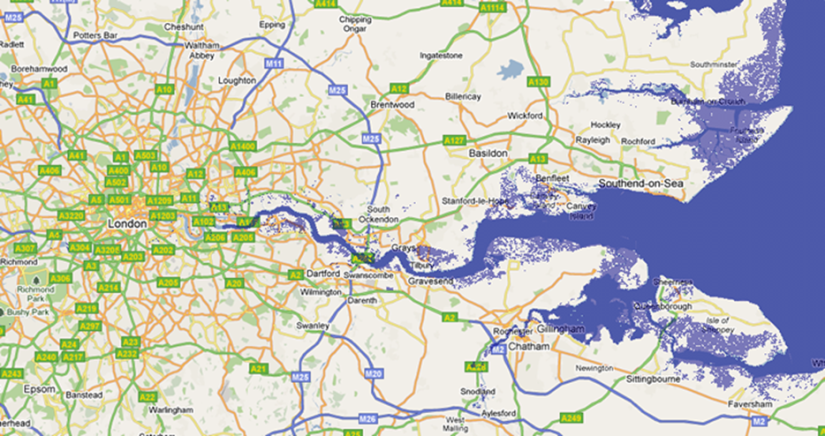The English language, which is estimated to have been in use for more than 1600 years (Crystal 2003: 30), has a rich and captivating history. Through the many years of its existence, the language has been ignored, treated unfairly or even threatened many a time. But it always managed to survive, and today, it could be argued, English is stronger and livelier than ever.
Nowadays, English is almost universally recognized as the main lingua franca of the entire world, and this status has had a huge influence on the language all over the world. But it would be erroneous to assume that English experiences change only on the global scale. Not only now, but through the ages as well, many inside forces have shaped and reshaped the English language, which resulted in numerous dialects and accents spoken today all over the United Kingdom.
My current focus is on one of them, Estuary English, also referred to as RGB (Regional General British) or Modern RP (Modern Received Pronunciation) (Cruttenden 2014). It is most often called a regional variation or an accent of the English language. But before discussing its history and characteristics, the terms used to describe Estuary English should be presented.
Estuary English is usually referred to as a type of pronunciation or speech (Leith 1997; Cruttenden 2014; Knowles 2014; and others). This suggests that the name ‘Estuary English’ is mostly used to describe characteristics of sound production, which would make it an accent, i. e. something which differs from General (or Standard) English only in pronunciation (Wells 1998: 3). This description is fitting for Estuary English, since it does not have any non-Standard grammatical forms or vocabulary items. It would be harder to decide whether the term dialect is applicable to Estuary English, since a dialect can be ‘any speech variety which is more than an idiolect but less than a language’ (Wells 1998: 3). Due to the vagueness of the term and the fact that it is most popularly used to describe a variation of language that has not only unique pronunciation, but grammar and vocabulary as well, it will not be employed currently.
Estuary English may also be called ‘geographically distinct’ (Wells 1998: 8) or a ‘regional norm’ (Leith 1997: 135). Both of these terms suggest a specific region the language variation stems from. It is believed that Estuary English ‘spread outwards from London along the Thames Estuary in Essex and North Kent’ and may have also reached other urban areas, such as Liverpool, Glasgow, Norwich and others (Cruttenden 2014: 82). The wide-spread usage of the accent may be the reason some scholars claim it is not an accent at all – Roach, for example, argues that ‘in reality there is no such accent [as Estuary English], and the term should be used with care’ (2000). He goes on to explain that the idea of Estuary English accent was conceived by sociolinguists, who observed that some people, who would traditionally be expected to use RP, started ‘to speak with some characteristics of the accents of the London area (the estuary referred to is the Thames estuary), such as glottal stops, which would in earlier times have caused comment or disapproval’ (Roach 2000). Roach is in a way supported by Cruttenden, who claims that ‘Estuary English is said to be being adopted by those wishing to avoid the stigma of GB [General British; a term used approximately in place of Received Pronunciation] as ‘posh’ and by upwardly mobile speakers of local accents’ (2014), thus highlighting the relationship between RP and Estuary English Roach built his argument on.

Due to its close relations to RP, there is a prominent tendency to refer to Estuary English as a ‘posh’ (higher class) accent. However, its social status is usually seen as being somewhere between RP and Cockney. Which is natural, since Estuary English emerged with ‘the advent of universal secondary education in 1994 and a huge expansion of tertiary education’ (Cruttenden 2014: 78), making it popular among young professionals and celebrities. Also, many people use Estuary English ‘with the admixture of a limited number of regional features’ (Cruttenden 2014: 78), which makes the accent sound more accessible and less pretentious than RP.